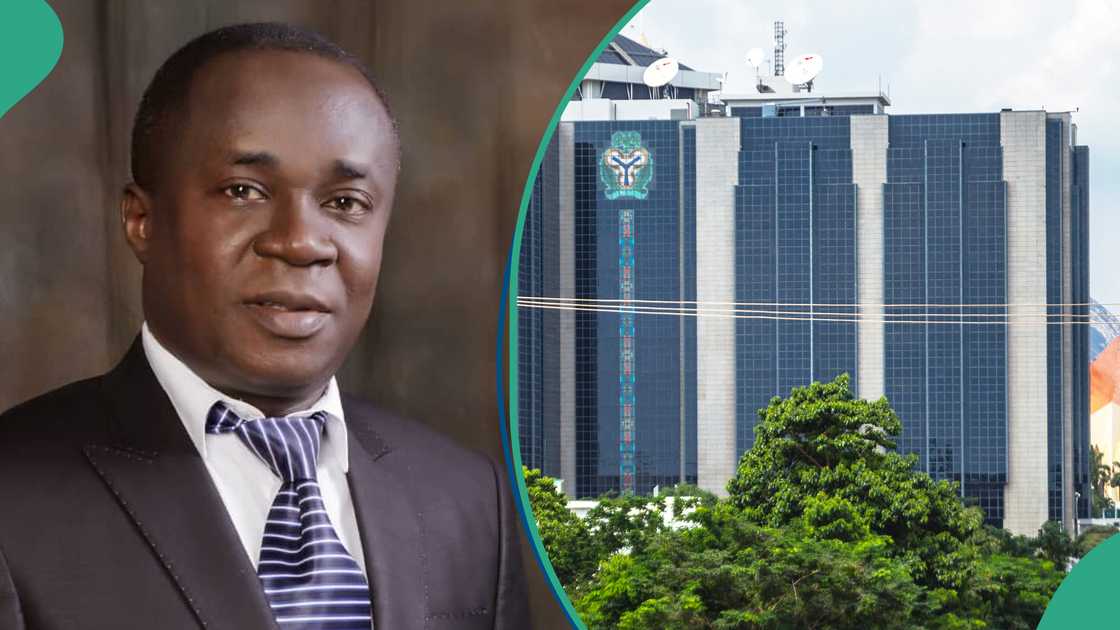Experts Analyse CBN’s MPR Decision, Say Policy Should Lower Lending Costs
- Economists have reacted to the Central Bank of Nigeria's, Monetary Policy decision to retain MPR at 27%
- They believe that the CBN Monetary Policy Committee made the right decision and believe it will improve bank lending
- In an exclusive chat with Legit.ng, the experts warned that the real impact would depend on whether banks pass on the reduced funding costs
Legit.ng journalist Dave Ibemere has over a decade of experience in business journalism, with in-depth knowledge of the Nigerian economy, stocks, and general market trends.
Economists have welcomed the Central Bank of Nigeria’s (CBN) latest monetary policy decision to hold interest rates at 27%.
They believe that the decision would ease borrowing costs and support lending to the real sector.

Source: Twitter
Expert reacts to CBN monetary policy decision
Reacting to Tuesday’s decision, United Capital’s Chief Economist, Ayodele Akinwunmi, told Legit.ng that the MPC’s stance was “well grounded and sound,” noting that although he expected a reduction in the MPR, the committee still implemented a form of monetary easing.
He said.
“The decision is well grounded and sound. Although I expected a drop in MPR, what they did is still a type of monetary policy easing through the adjustments to the asymmetry corridor around the MPR."
Akinwunmi explained that the narrowing of the corridor will immediately reduce the cost of borrowing from the CBN as the lender of last resort, a move he believes will push down interbank rates.
He added.
“Interbank rate should drop in the short term as the borrowing cost from the CBN will fall. This will lead to lower lending rates to the real sector of the economy."

Source: Getty Images
‘A Welcome Development’ says Prof. Uwaleke
Prof. Uche Uwaleke, the Executive Director of the Institute of Capital Markets at Nasarawa State University, also described the decision as timely and positive.
He highlighted the narrowing of the standing facility corridor—from +250/-250 basis points to +50/-450 basis points—as a major indicator of cautious policy easing.
Uwaleke said.
“This adjustment signals cautious operational easing, even as headline MPR remains elevated to continue managing inflation and FX pressure."
Uwaleke noted that a cheaper lending window at the CBN should normally translate to lower marginal funding costs for banks, reduce volatility in the interbank market, and encourage increased lending to Micro, Small and Medium Enterprises (MSMEs).
He, however, expressed concern about whether banks will actually pass on the lower funding costs to borrowers.
“The real challenge is whether banks will translate this corridor adjustment into actual lower lending rates"
Given Nigeria’s fiscal constraints, inflation risks, and the need to sustain growth, Uwaleke described the MPC’s overall decision as “quite appropriate.”
FX reserves rise
Earlier, Legit.ng reported that the Central Bank of Nigeria (CBN) recently disclosed that the country’s Nigeria'shave climbed to $41 billion, the highest in nearly four years.
This marks the strongest reserve position since December 3, 2021, reflecting a notable rebound after an extended period of decline driven mainly by external debt obligations.

Read also
TTP calls for stakeholders unity as its electronic call-up system transforms port logistics
Proofreading by James Ojo, copy editor at Legit.ng.
Source: Legit.ng



